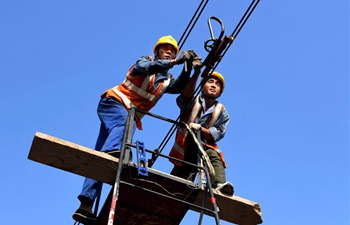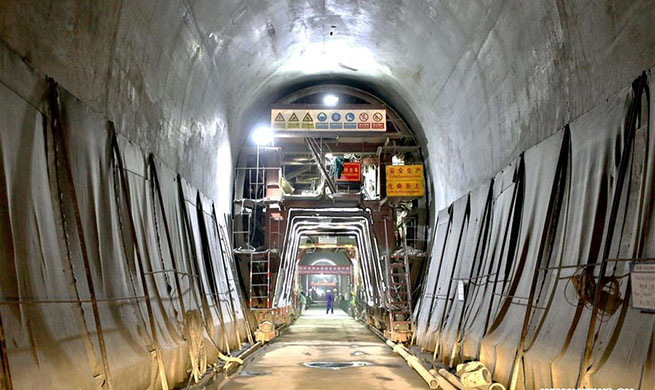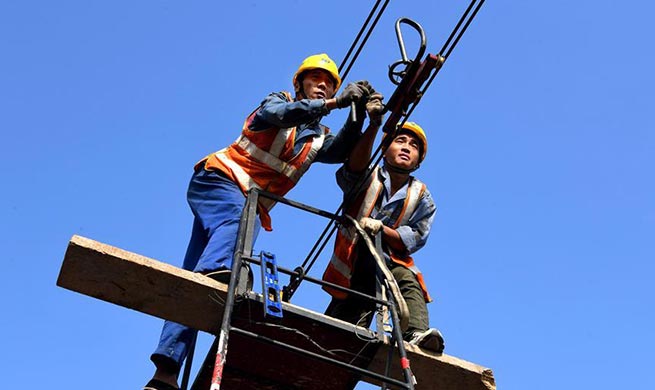JERUSALEM, Sept. 25 (Xinhua) -- Israel's security cabinet was convened on Tuesday morning amidst new tensions between Israel and Russia over Moscow's announcement to provide an advanced S-300 air defense system to Syria.
The ministers met in the Prime Minister's Office in Jerusalem to receive updated information on the recent developments, a government spokesperson said, without elaborating.
Shortly after the meeting, Israeli Prime Minister Benjamin Netanyahu will depart to New York to attend the United Nations General Assembly.
On Monday, the Kremlin said that Russian President Vladimir Putin had informed Netanyahu over the phone that Russia intends to supply Syrian President Bashar al-Assad's army with an advanced S-300 surface-to-air missile system to protect his forces.
Netanyahu warned that transferring advanced weapons systems into "irresponsible hands will increase the dangers in the region," adding that Israel "will continue to defend its security and its interests," according to a statement released by his office.
The Kremlin's move came a day after Russia officially accused the Israeli air force of holding the entire reasonability to the fatal interception of the Russian Il-20 surveillance aircraft last Monday.
The plane, with 15 Russian crew members on board, was mistakenly downed by a Syrian missile, when Israel was conducting an airstrike on Syria's Latakia province at the same time.
Israel worries that the new S-300 system will hinder its airstrikes in Syria.
The United States also urged Russia to reconsider the move. On Monday, U.S. National Security Adviser John Bolton said that supplying the system would be a "significant escalation" by Moscow.
Russia said in the past it will transfer the S-300 system to Syria but halt the plan amidst U.S.-Israeli pressure.
Israel has carried out some 200 airstrikes over the last 18 months, claiming that the attacks aimed to prevent Iranian weapons convoys and stop Iran from establishing a military foothold in Syria or providing precision weapons to the Lebanese-based military of Hezbollah, Israel's arch-foe.
















